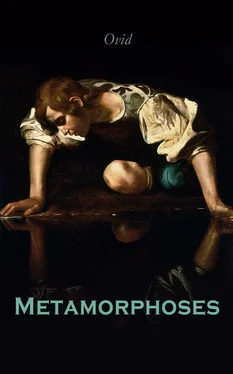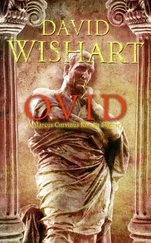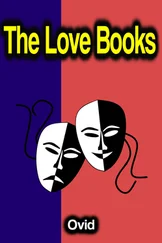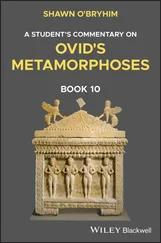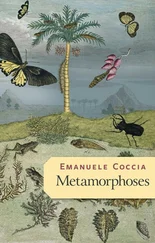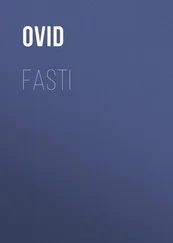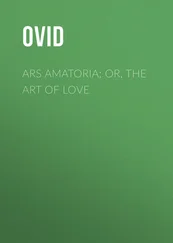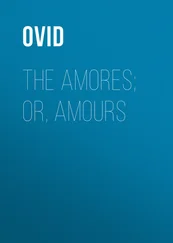There was no one more beauteous in all Hæmonia than Larissæan 69Coronis. At least, she pleased thee, Delphian God , as long as she continued chaste, or was not the object of remark. But the bird of Phœbus found out her infidelity; 70and the inexorable informer winged his way to his master, that he might disclose the hidden offence. Him the prattling crow follows, with flapping wings, to make all inquiries of him. And having heard the occasion of his journey, she says, “Thou art going on a fruitless errand; do not despise the presages of my voice.”
Cicero (On the Nature of the Gods, Book iii.) tells us, that Lycaon had a daughter who delighted in the chase, and that Jupiter, the second of that name, the king of Arcadia, fell in love with her. This was the ground on which she was said to have been a favorite of Diana. The story of Calisto having been received into Heaven, and forming the Constellation of the Bear, was perhaps grounded on the fact of Lycaon, her father, having been the first known to take particular notice of this Constellation. The story of the request of Juno, that Tethys will not receive this new Constellation into the Ocean, is probably derived from the circumstance, that the Bear, as well as the other stars within the Arctic Circle, never sets.
Possibly, Arcas, the son of Calisto, dying at a youthful age, may have been the origin of the Constellation of the Lesser Bear.
A virgin, the favorite of Apollo, of the same name with Coronis, is changed into a crow, for a story which she tells Minerva, concerning the basket in which Ericthonius was enclosed.
“Consider what I was, and what I am, and inquire into my deserts. Thou wilt find that my fidelity was my ruin. For once upon a time, Pallas had enclosed Ericthonius, an offspring born without a mother, in a basket made of Actæan twigs; and had given it to keep to the three virgins born of the two-shaped 71Cecrops, and had given them this injunction, that they should not inquire into her secrets. I, being hidden among the light foliage, was watching from a thick elm what they were doing. Two of them , Pandrosos and Herse, observe their charge without any treachery; Aglauros alone calls her sisters cowards, and unties the knots with her hand; but within they behold a child, and a dragon extended by him. I told the Goddess what was done; for which such a return as this is made to me, that I am said to have been banished from the protection of Minerva, and am placed after the bird of the night. My punishment may warn birds not to incur dangers, by their chattering. But I consider that she courted me with no inclination of my own, nor asking for any such favors . This thou mayst ask of Pallas thyself; although she is angry, she will not, with all her anger, deny this. For Coroneus, one famous in the land of Phocis (I mention what is well known) begot me: and so I was a virgin of royal birth, and was courted by rich suitors ( so despise me not). My beauty was the cause of my misfortune; for while I was passing with slow steps along the sea-shore, on the surface of the sand, as I was wont to do , the God of the Ocean beheld me, and was inflamed; and when he had consumed his time to no purpose, in entreating me with soft words, he prepared to use violence, and followed me. I fled, and I left the firm shore, and wearied myself in vain on the yielding sand. Then I invoked both Gods and men; but my voice did not reach any mortal. A virgin was moved for a virgin, and gave me assistance. I was extending my arms toward heaven; when those arms began to grow black with light feathers. I struggled to throw my garments from off my shoulders, but they were feathers, and had taken deep root in my skin. I tried to beat my naked breast with my hands, but I had now neither hands nor naked breast. I ran; and the sand did not retard my feet as before, and I was lifted up from the surface of the ground. After that, being lifted up, I was carried through the air, and was assigned, as a faultless companion, to Minerva. Yet what does this avail me, if Nyctimene, made a bird for a horrid crime, has succeeded me in my honor?”
Ericthonius was fabled to be the son, or foster-child, of Athene, or Minerva, perhaps because he was the son of the daughter of Cranaus, who had the name of Athene, by a priest of Vulcan, which Divinity was said to have been his progenitor. St. Augustine alleges that he was exposed, and found in a temple dedicated to Minerva and Vulcan. His name being composed of two words, ἔρις and χθὼν, signifying ‘contention,’ and ‘earth,’ Strabo imagines that he was the son of Vulcan and the Earth. But it seems that the real ground on which he was called by that name was, that he disputed the right to the crown of Athens with Amphictyon, on the death of Cranaus, the second king. Amphictyon prevailed, but Ericthonius succeeded him. To hide his legs, which were deformed, he is said to have invented chariots; though that is not likely, as Egypt, from which Greece had received many colonies, was acquainted with the use of them from the earliest times. He is also said to have instituted the festival of the Panathenæa, at Athens, whence, in process of time, it was adopted by the whole of Greece.
Hyginus tells us, that after his death he was received into heaven as the constellation ‘Auriga,’ or ‘the Charioteer;’ and he further informs us, that the deformity of his legs gave occasion to the saying, that he was half man and half a serpent. Apollodorus says that he was born in Attica; that he was the son of Cranaë, the daughter of Attis; and that he dethroned Amphictyon, and became the fourth king of Athens.
Nyctimene having entertained a criminal passion for her father, Nycteus, the Gods, to punish her incest, transform her into an owl. Apollo pierces the breast of Coronis with an arrow, on the raven informing him of the infidelity of his mistress.
“Has not the thing, which is very well known throughout the whole of Lesbos, 72been heard of by thee, that Nyctimene defiled the bed of her father? She is a bird indeed; but being conscious of her crime, she avoids the human gaze and the light, and conceals her shame in the darkness; and by all the birds she is expelled entirely from the sky.”
The raven says to him, saying such things, “May this, thy calling of me back, prove a mischief to thee, I pray; I despise the worthless omen.” Nor does he drop his intended journey; and he tells his master, that he has seen Coronis lying down with a youth of Hæmonia. On hearing the crime of his mistress, his laurel fell down; and at the same moment his usual looks, his plectrum, 73and his color, forsook the God. And as his mind was now burning with swelling rage, he took up his wonted arms, and levelled his bow bent from the extremities, and pierced, with an unerring shaft, that bosom, that had been so oft pressed to his II. 605-632 own breast. Wounded, she uttered a groan, and, drawing the steel from out of the wound, she bathed her white limbs with purple blood; and she said, “I might justly , Phœbus, have been punished by thee, but still I might have first brought forth; now we two shall die in one.” Thus far she spoke ; and she poured forth her life, together with her blood. A deadly coldness took possession of her body deprived of life.
The lover, too late, alas! repents of his cruel vengeance, and blames himself that he listened to the bird, and that he was so infuriated. He hates the bird, through which he was forced to know of the crime and the cause of his sorrow; he hates, too, the string, the bow, and his hand; and together with his hand, those rash weapons, the arrows. He cherishes her fallen to the ground, and by late resources endeavors to conquer her destiny; and in vain he practices his physical arts.
Читать дальше
